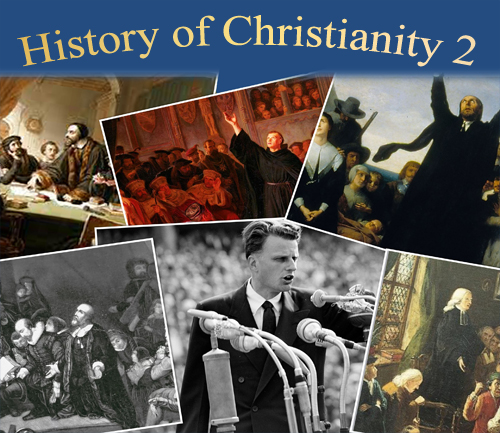Module 6: The English Church
Hi everyone, and welcome to the sixth module of the History of Christianity 2 Course. In this section, we'll be continuing to work through the history of the Reformation in England. This module will pick up the story where the prior module ended. This module will cover the religious tensions in England as a result of the Elizabethan Settlement, the English Civil War and its long-term results. And this module will look in more depth at the Puritans in England at that time.
This module will help you to understand the reasons behind the continuing changes in the church of England and the various forces seeking to determine the direction of that church. It will cover significant theological ideas and practices from that time period and how influential those ideas have been for subsequent history, even until today.
The student will be exposed to different attitudes, theologies, and approaches to church ministry, organization, and practice, and how this should influence the surrounding society. And the student will have opportunity to evaluate these ideas and actions and the lessons that can be learned from all of these various movements and their outcomes. This module will also aid the student to work through how the lessons learned are applicable in their own life and ministry.
Introductory Scenario
Imagine that you are in the midst of an unsustainable compromise situation like the Elizabethan Settlement covered in the prior module. There are different sides pushing in different directions. How could you determine which direction was the better option? How could you advocate for the best possibility? How could you attempt to bring opponents over to the better view? How would you respond to opposition to, or failure of, this better strategy? What price would you be willing to pay to advocate for this best approach? Please consider these questions and be watching for material that will help you answer them as you work through this module.
Module Objectives and Outcomes
Upon successful completion of this module, the student will:
- Describe the various religious groups in England at that time, and their goals and desires for the English church.
- Understand the reasons for and outcomes of the English Civil War, including the long-term consequences.
- Describe the character and general approaches of the Puritans, and what lessons we can learn from them and apply to modern church practices.
- Place the major events of the continuing English Reformation and church life in a general chronology.
Instruction Guides
In this section, you'll find links to important instructional documents for this module. Click the following links to open each document. There is a set of instructions for individual study and a document for group study.
Textbook Content
In this section, you'll find a study guide for the textbook reading for module 6. And then you'll find the link to a practice quiz covering this textbook reading.
This section also contains a review quiz to test your understanding of the textbook material for this module. By clicking the banner below, you will be given a series of questions, in random order. The quiz will be different each time, so feel free to take it more than once.

Click the button next to the best answer for each question, or drag each term to its best definition. Then press the Submit
button at the bottom to see if your answers are correct.
Lecture Content
In this section, you will find the video lectures the continuing English Reformation, the English Civil War, and the Puritans. They are designed to be watched in order, but each video should make sense on its own. Click each banner to open access to each video. There are also links with each video if you prefer to watch on the Rumble or YouTube interface or download just the audio to listen offline.






























